Matching skills Normal Worksheets for Ages 3-7
15 filtered results
-
From - To
Discover our engaging Matching Skills Normal Worksheets designed for children ages 3-7. These worksheets promote critical thinking and help young learners develop essential matching abilities through fun activities and colorful illustrations. Ideal for home or classroom use, these resources make learning enjoyable while nurturing cognitive skills. Each worksheet encourages children to identify similarities and differences, enhancing their visual perception and memory. Perfect for early education, our printable materials are easy to download and adapt to various learning styles. Equip your little ones with the foundational skills they need, fostering creativity and curiosity in a playful environment. Start matching today!
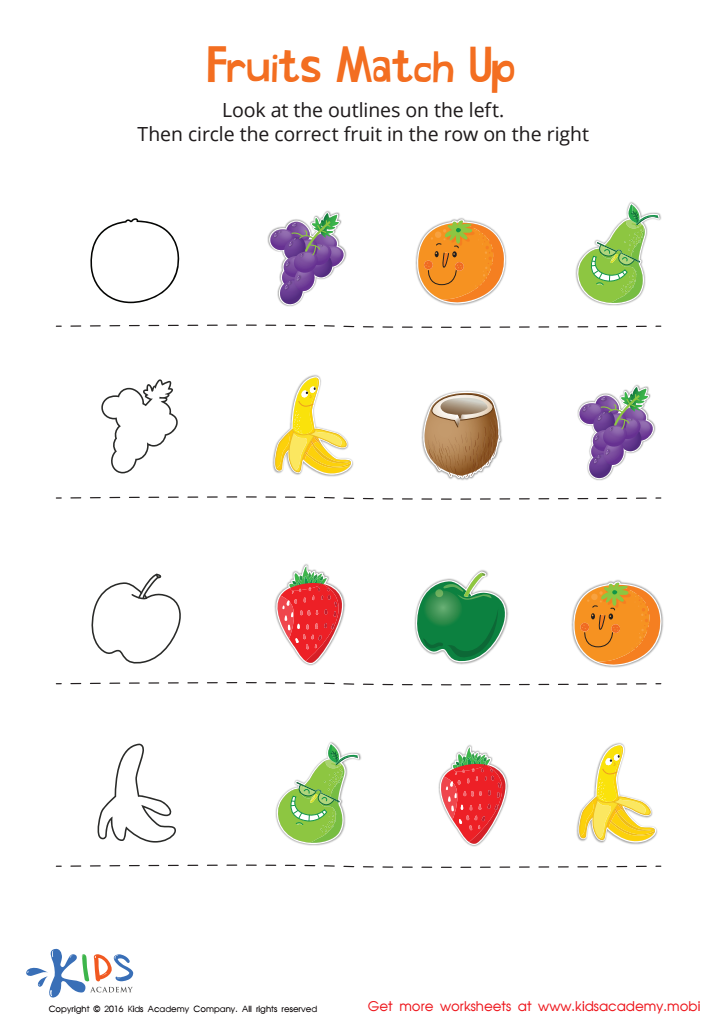

Fruits Match Up Worksheet
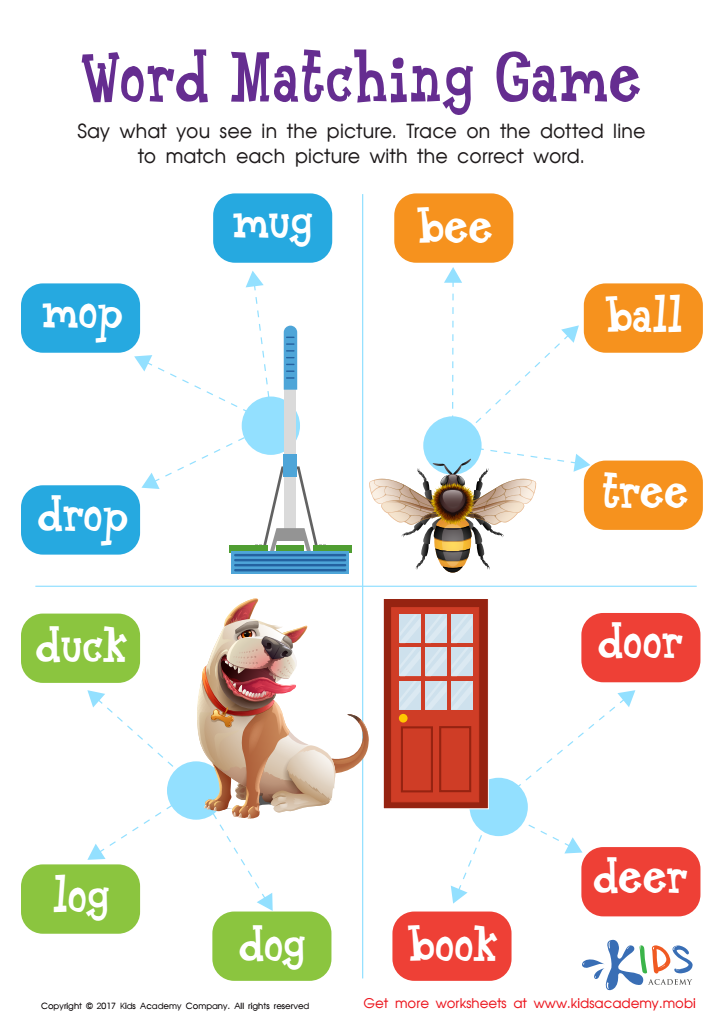

Word Matching Game Worksheet
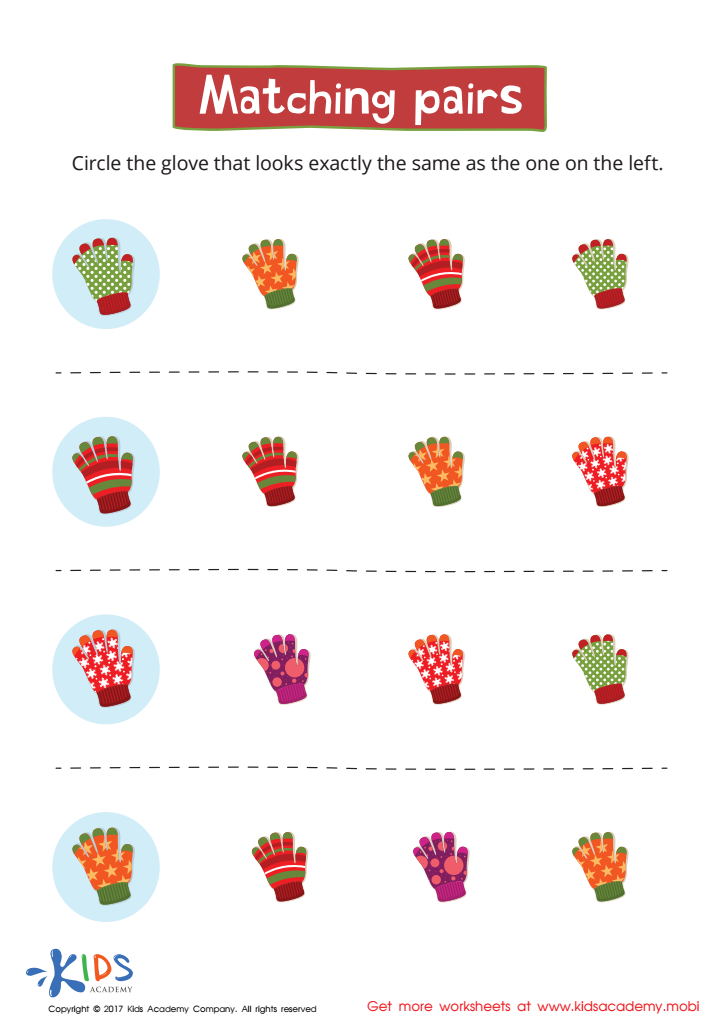

Matching: Matching Pairs Worksheet
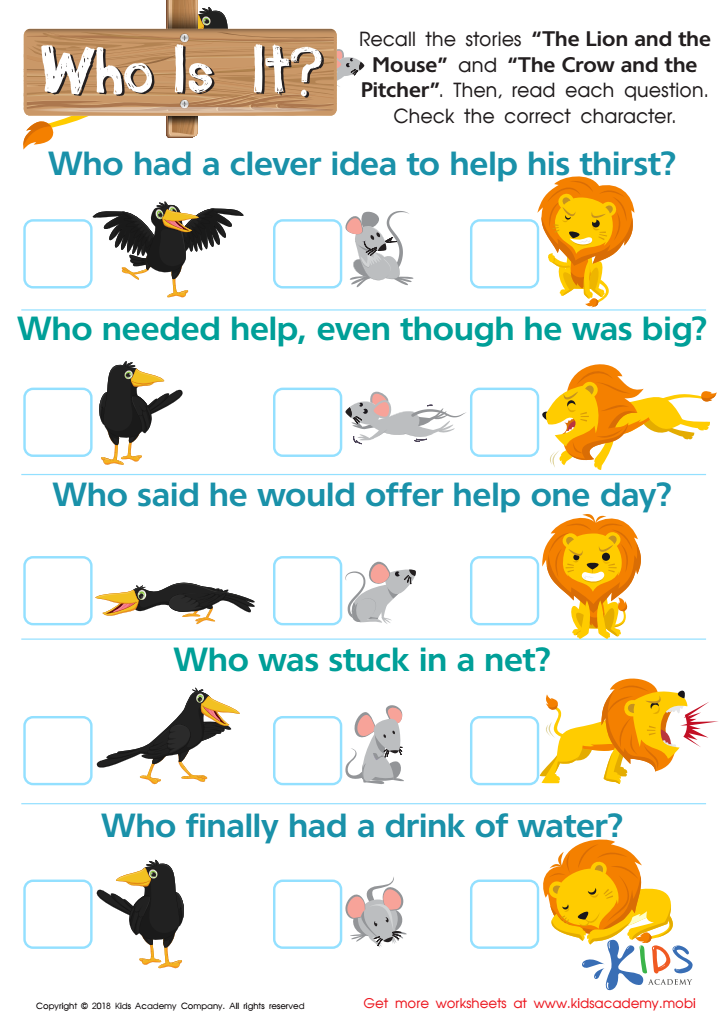

Who Is It? Worksheet
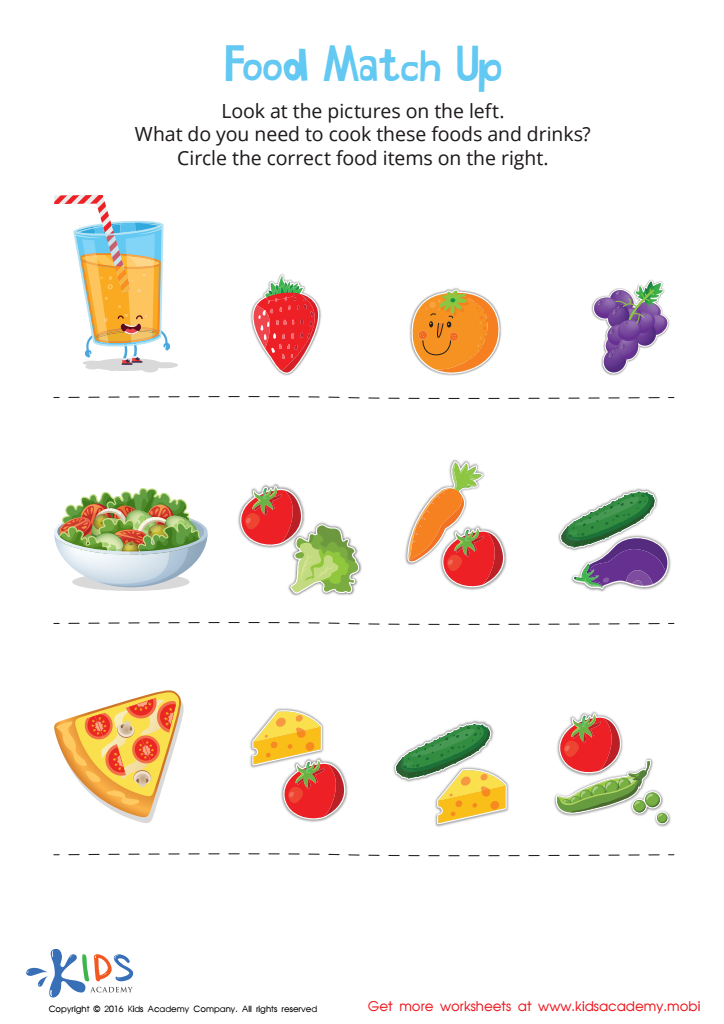

Food Match Up Worksheet
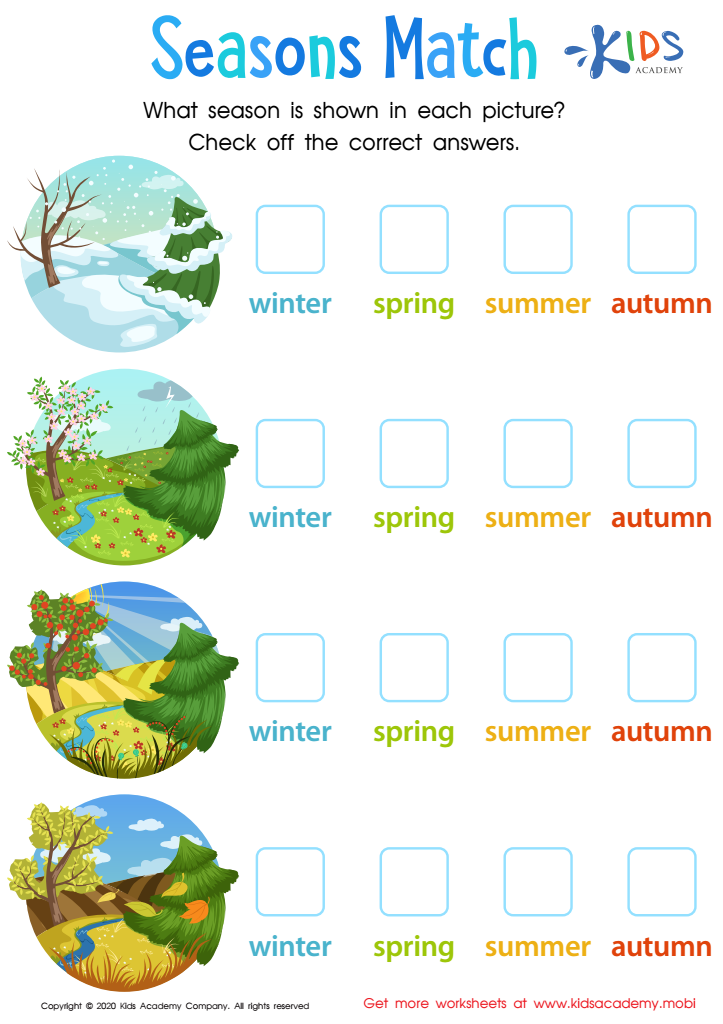

Seasons Match Worksheet
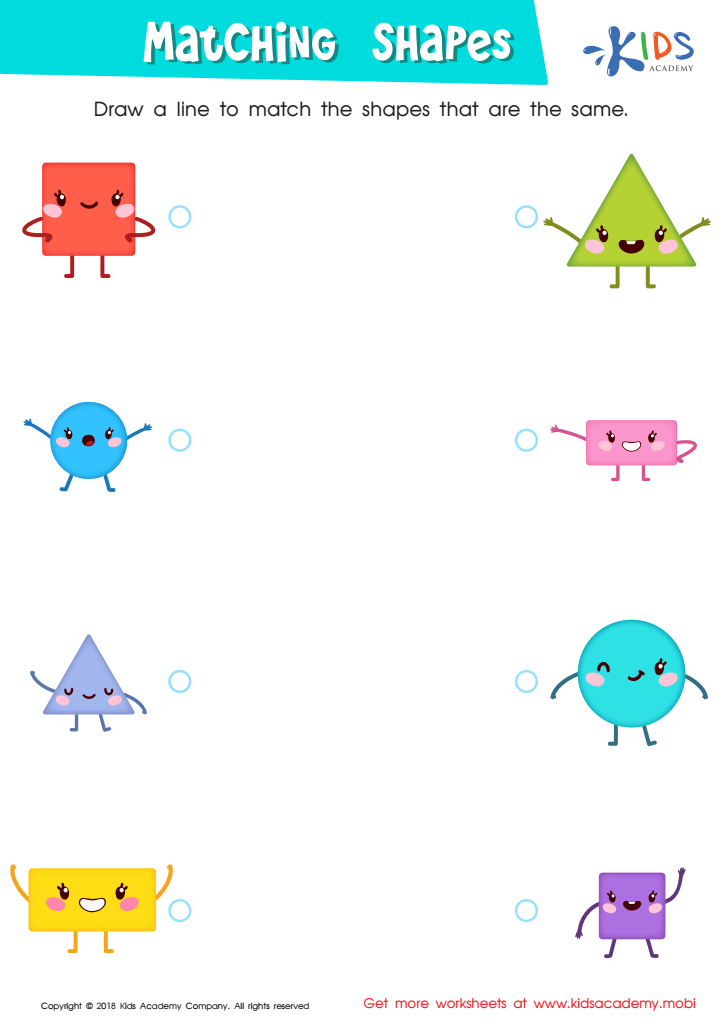

Matching Shapes Worksheet
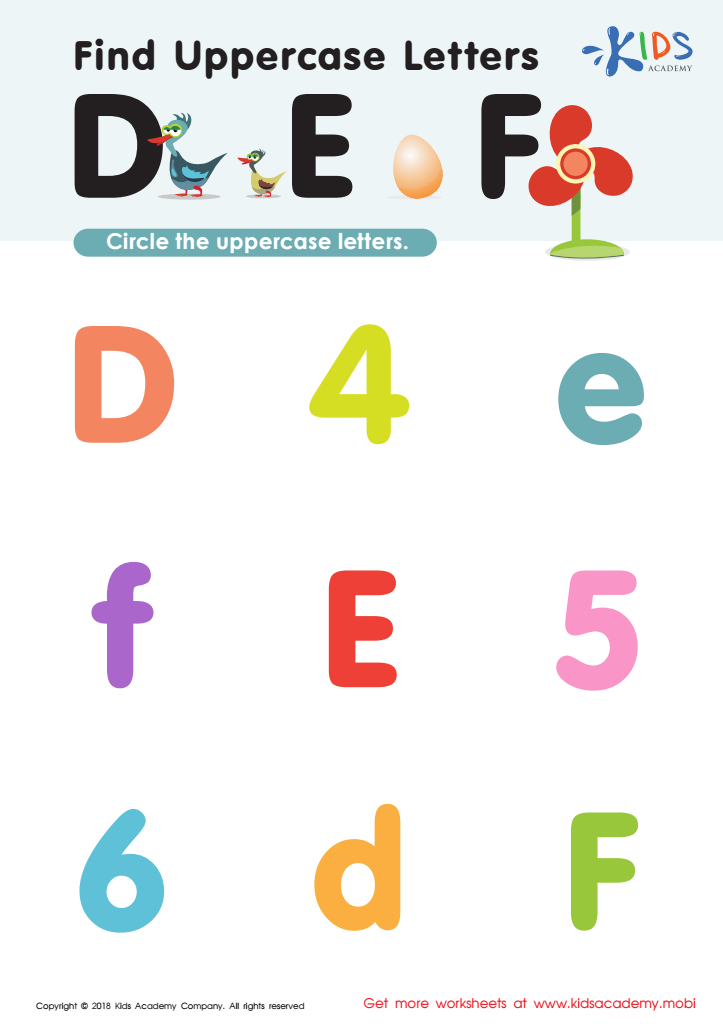

Find Uppercase Letters D, E, and F Worksheet
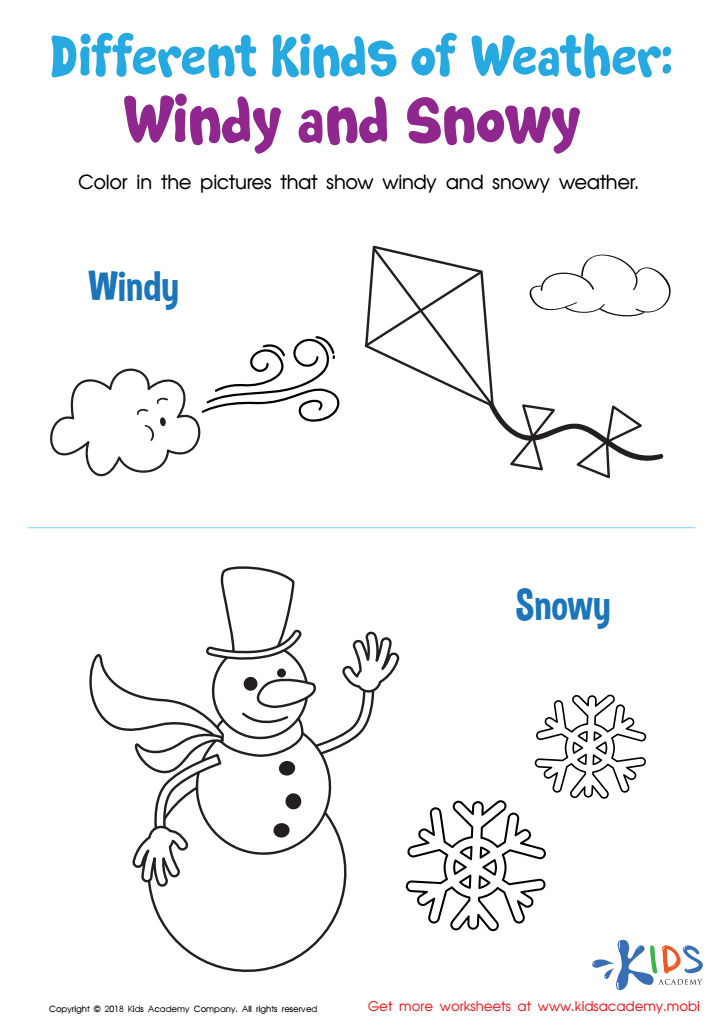

Different Kinds of Weather: Windy and Snowy Worksheet
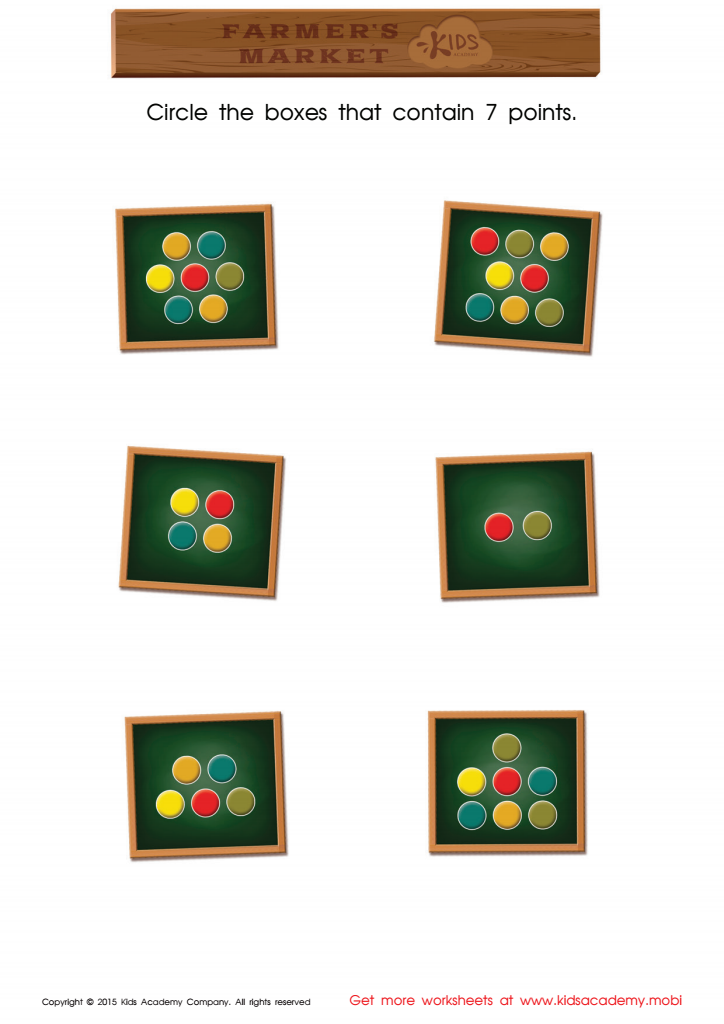

Count and Match Points 7 Math Worksheet
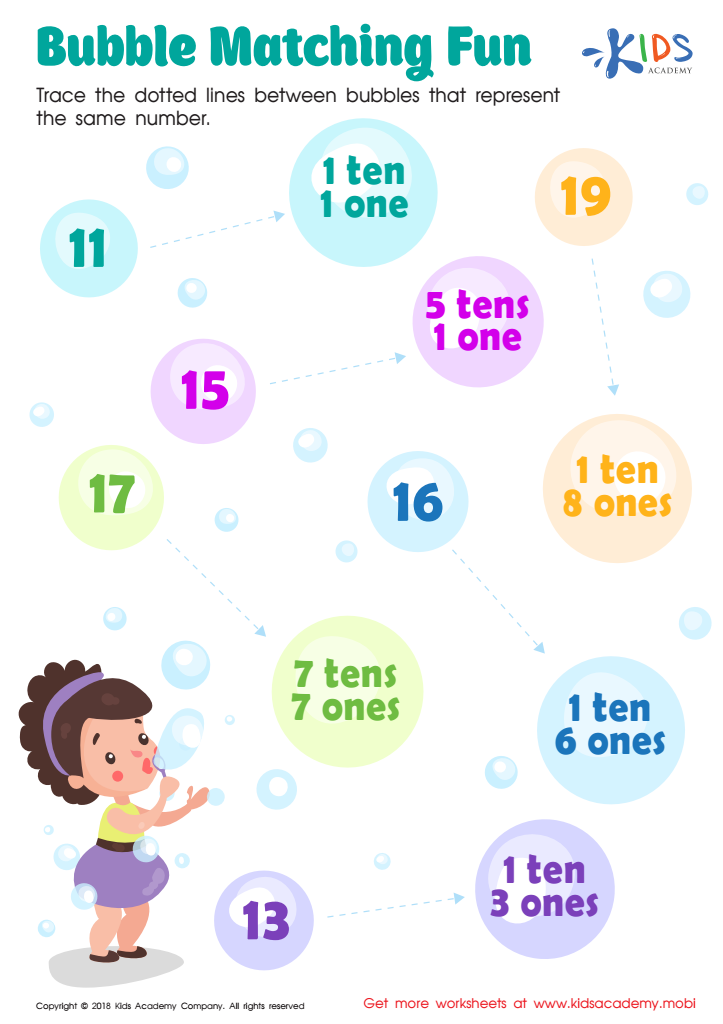

Bubble Matching Fun Worksheet
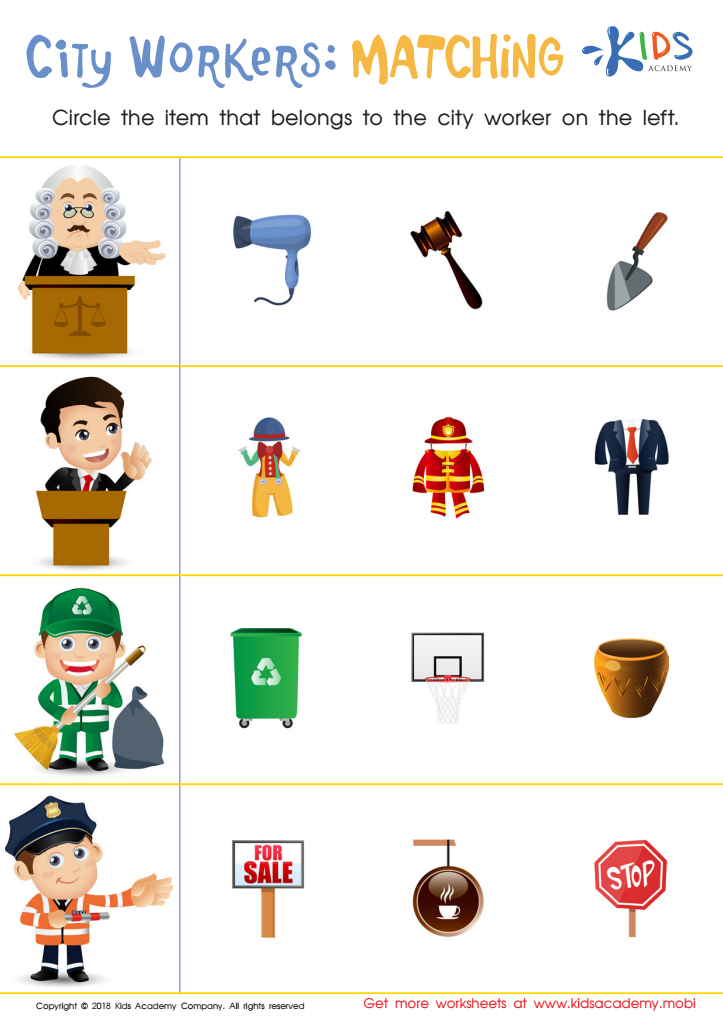

City Workers: Matching Worksheet
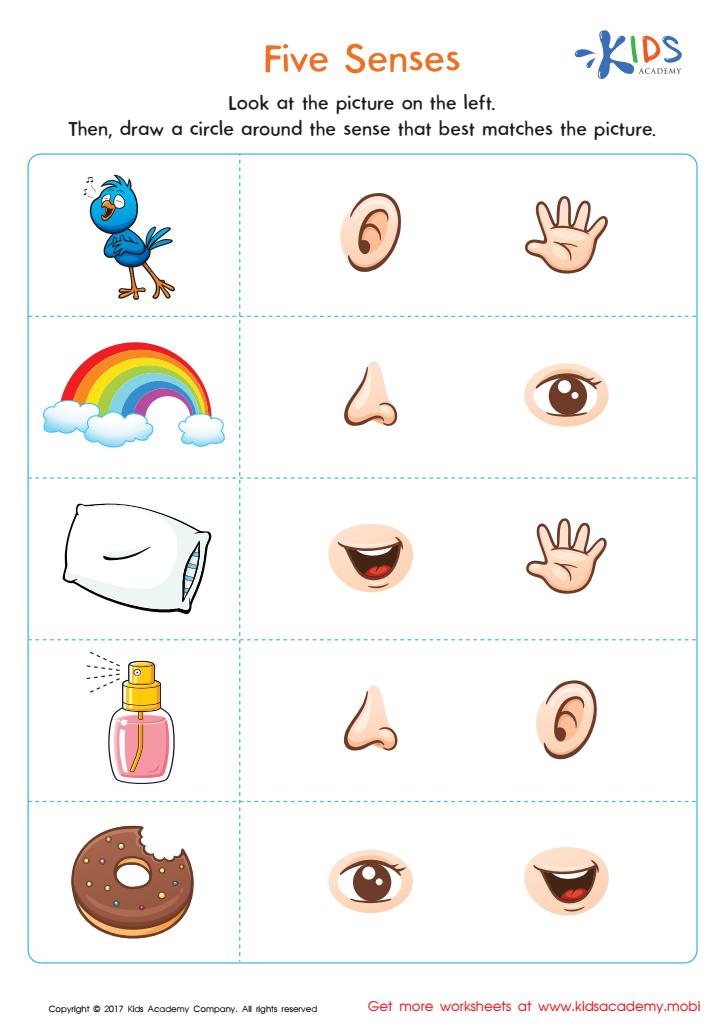

Five Senses Printable
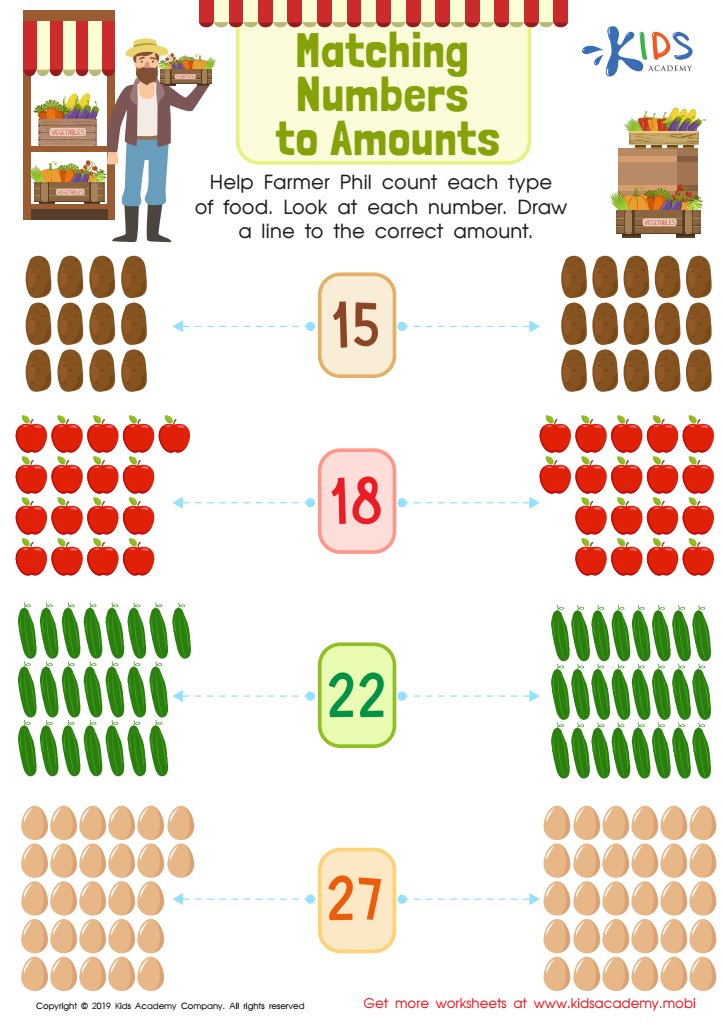

Matching Numbers to Amounts Worksheet
Matching skills, typically developed in early childhood between the ages of 3 to 7, are fundamental cognitive abilities that significantly impact a child's overall learning and development. Parents and teachers should prioritize these skills because they lay the groundwork for more complex cognitive tasks.
Children engage in matching activities when they classify or pair objects based on attributes like color, shape, or size. This not only enhances their observational skills but also boosts their ability to make connections between concepts, which is crucial for later learning, such as reading and mathematics.
Moreover, matching skills foster critical thinking and problem-solving techniques, encouraging children to recognize patterns and make informed decisions. These are essential competencies in a rapidly evolving world.
Additionally, matching activities can be engaging and enjoyable for young learners, serving as a playful medium to develop social skills and cooperation while working in groups. Parents and educators can create enriching experiences by integrating matching games into daily routines, ensuring that children build a strong foundation for future academic success.
Ultimately, understanding and supporting the development of matching skills is an investment in a child's overall intellectual and social growth, equipping them for lifelong learning.
 Assign to My Students
Assign to My Students
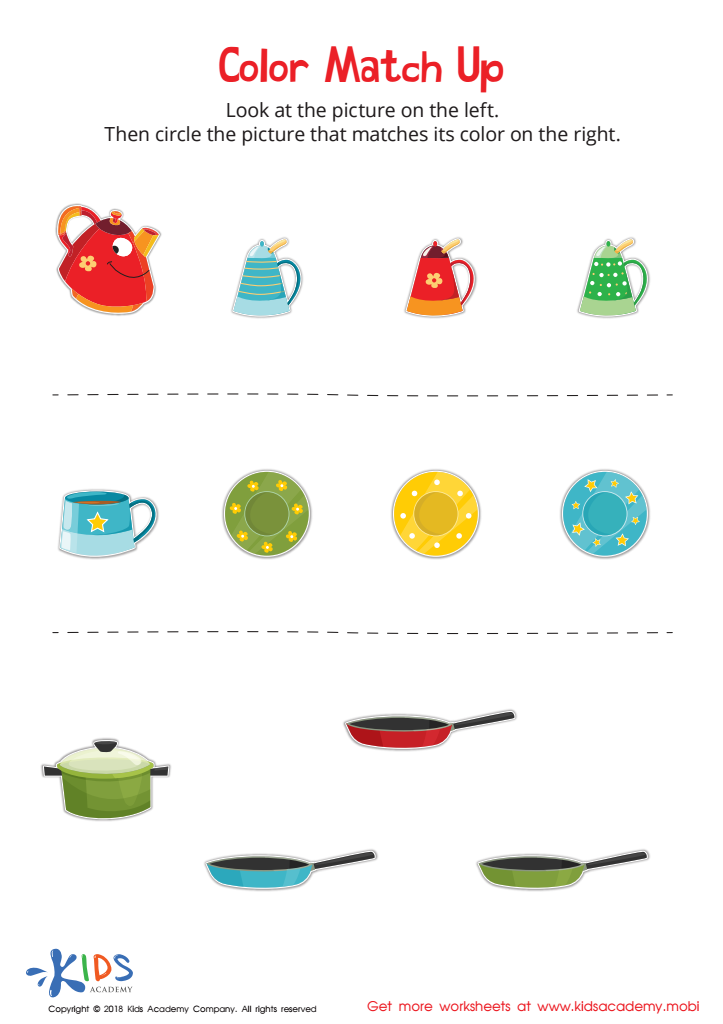



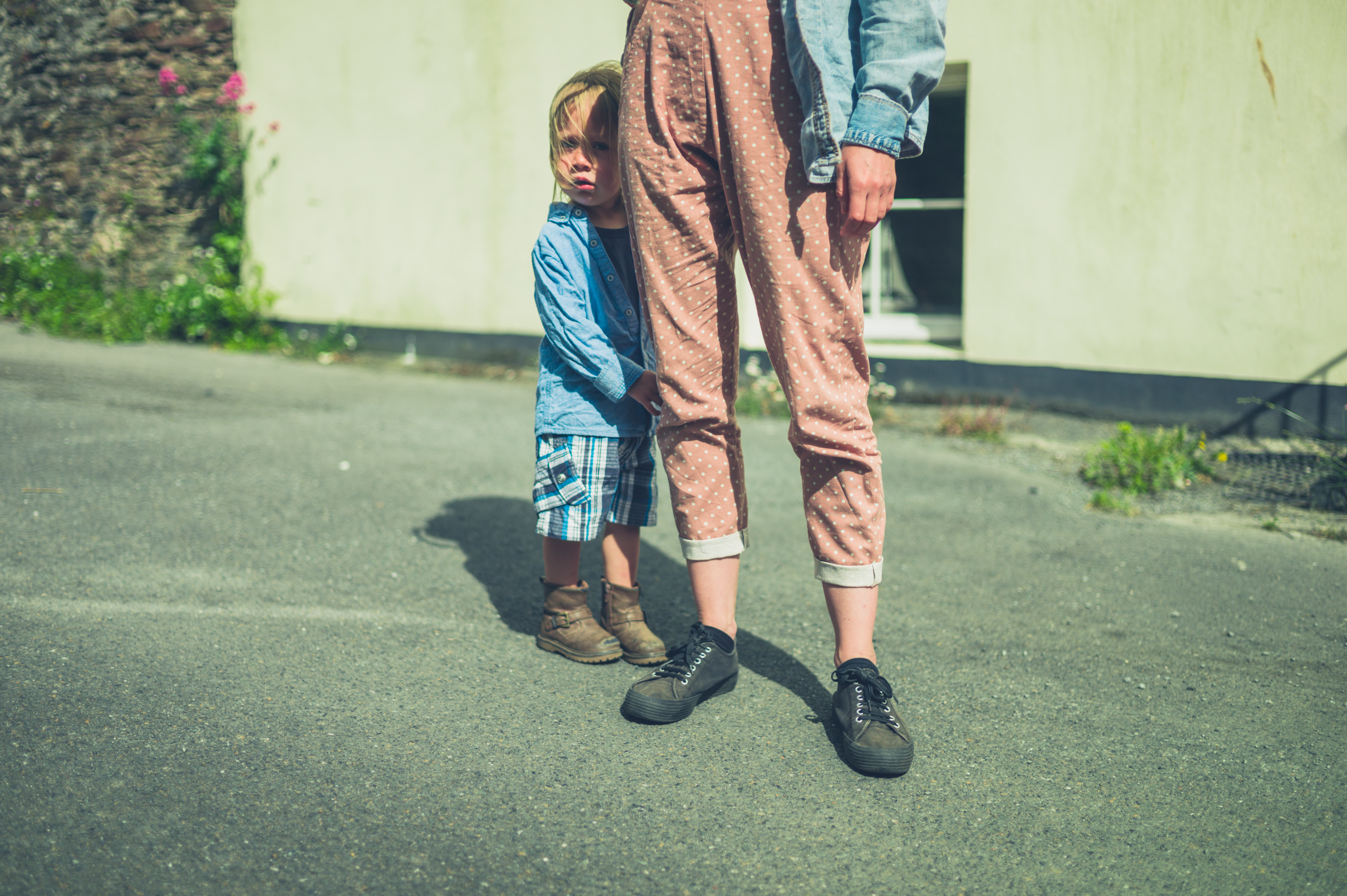
.jpg)










